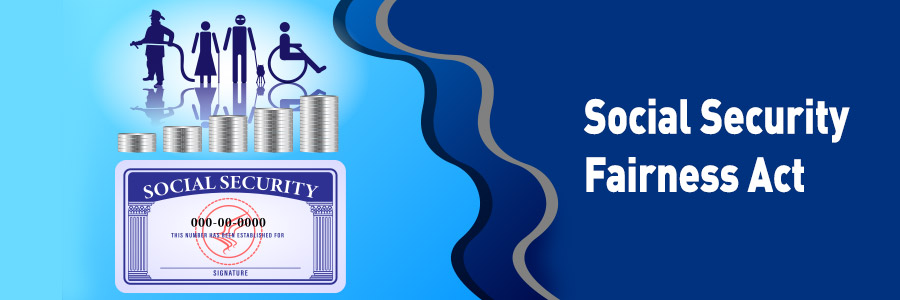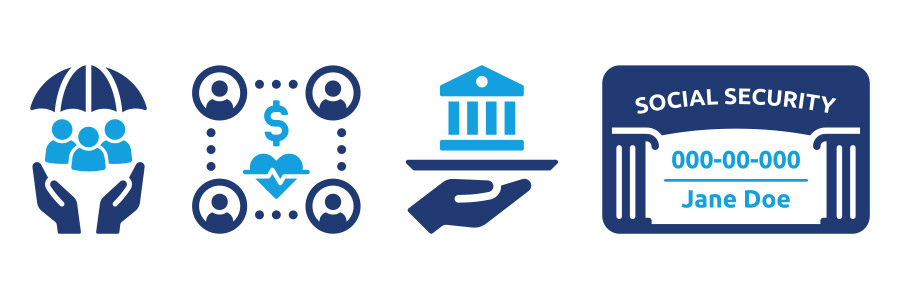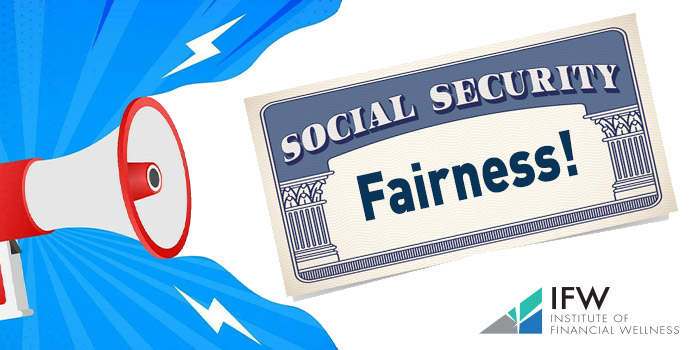If you’re getting close to retirement, you might have noticed some buzz about changes to Social Security. On January 5, 2025, President Joe Biden signed the Social Security Fairness Act into law. This new law aims to fix some long-standing issues that have impacted retirees’ benefits for years. Let’s dive into what this social security fairness act update means for you and your retirement plans.
What Is the Social Security Fairness Act?
The Social Security Fairness Act gets rid of both the Windfall Elimination Provision (WEP) and the Government Pension Offset (GPO) entirely. These rules were originally meant to prevent “double-dipping” in retirement benefits, which occurs when individuals qualify for both Social Security benefits and pensions from jobs not covered by Social Security.
- Windfall Elimination Provision (WEP): This rule used to cut Social Security benefits for people who also had pensions from non-covered jobs, like some state or local government roles.
- Government Pension Offset (GPO): This rule reduced spousal or survivor benefits by two-thirds of the pension amount from non-covered jobs.
While the law is already signed, the Social Security Administration (SSA) is still ironing out the details on how to roll these changes out. Make sure to stay tuned for a status update from the SSA as they finalize the details.
Recent Updates to the Social Security Fairness Act

The latest updates to the Social Security Fairness Act completely get rid of the WEP and GPO rules. This is a big deal because it makes Social Security a lot fairer for retirees who’ve contributed to the system, even if only part of the time.
Key Changes:
- Elimination of the WEP: Social Security benefits will no longer be reduced for individuals receiving a pension from non-covered employment.
- Elimination of the GPO: Spousal and survivor benefits will no longer be offset by pensions from non-covered jobs.
These eliminations mean that many retirees who were previously penalized will now receive their full Social Security benefits, regardless of their pension arrangements. This is especially good news for teachers, firefighters, and other public sector workers who’ve felt the pinch for years.
How These Changes Could Impact Future Retirees

The elimination of the WEP and GPO provisions is expected to have several significant implications for future retirees:
- More Money in Your Pocket: If these rules used to cut your Social Security payments, you can now expect higher monthly checks. For a lot of people, this could mean an extra few hundred dollars every month—a real game-changer for covering day-to-day expenses.
- Greater Financial Stability: Without these deductions, your income will be more predictable, making it easier to prepare for retirement by planning for things like medical bills, housing, or even that dream vacation you’ve been putting off.
- Boost for Public Sector Jobs: Jobs in education, firefighting, and other public services might look more appealing now that these financial penalties are gone. This could encourage more people to step into these important roles.
- Challenges for Social Security Funds: While this is great news for retirees, it might put extra pressure on the Social Security trust fund. Lawmakers need to take action to ensure the system stays strong for everyone.
Actionable Insights for Those Nearing Retirement

To get the most of these updates, here are some easy steps you can take:
- Contact Your Local Representatives: Reach out to your local representatives to share your thoughts on Social Security and advocate for continued improvements. Engage actively to make sure your voice shapes future retirement policies.
- Review Your Social Security Benefits Statement: Use the Social Security Administration’s online portal to access your benefits statement. Verify that your earnings record is accurate and review your projected benefits under the updated rules.
- Consult a Financial Advisor: A good advisor can help you figure out how these changes fit into your retirement plan. They can also help with things like taxes and investments to make sure everything’s working together. Request your retirement score to see how close you are to hitting your retirement goals—it’s a smart first step.
- Understand the Timeline: Stay informed about when the updates will take effect and how they will be implemented. This will help you make informed decisions about claiming benefits.
- Maximize Your Contributions: If you’re still working, think about putting more into your 401(k), IRA, or other savings accounts. It’s a great way to build on the extra Social Security benefits you’ll be getting.
- Educate Yourself on Broader Retirement Topics: Take some time to brush up on Social Security and other ways to plan for retirement. The more you know, the better prepared you’ll be to make smart decisions.
Final Thoughts
The recent updates to the Social Security Fairness Act are a huge win for retirees, especially those who’ve been feeling left out for years. Getting rid of the WEP and GPO rules means more money and more fairness, particularly for public sector workers like teachers and firefighters.
That said, it’s still important to stay on top of your retirement planning. Keep yourself informed, talk to an expert if you need help, and make a plan that fits your goals. With the right moves, you can make the most of these changes and set yourself up for a more comfortable retirement.




